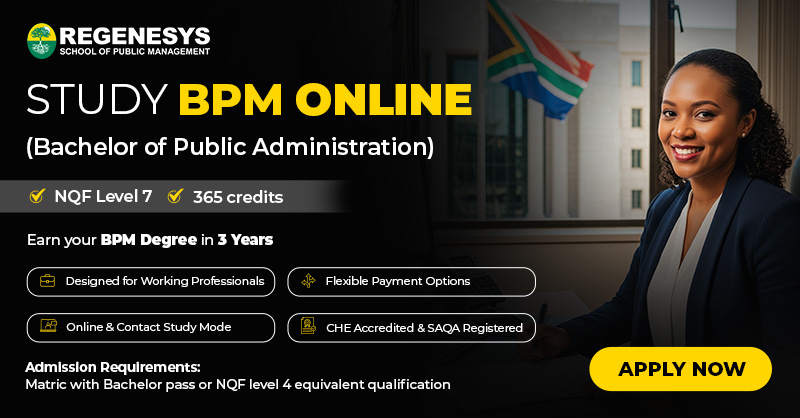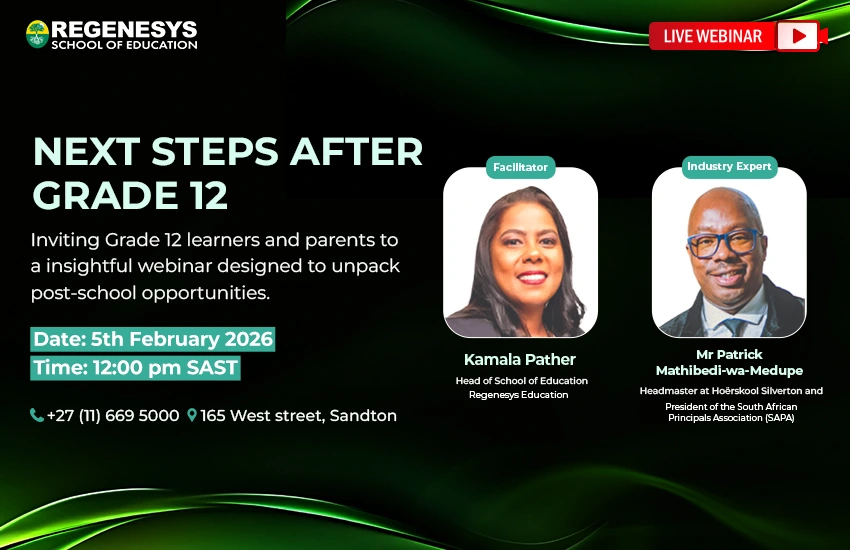Development studies is more than just theory; it is about equipping students with the tools to address real-world problems such as poverty, inequality, and sustainable development. Within the development studies specialisation in BPM, students gain the knowledge to critically analyse policies, design solutions for community development, and contribute towards sustainable governance in South Africa and beyond. With strong links to the United Nations Sustainable Development Goals (UN SDGs), this pathway is designed for those who want to pursue socially meaningful careers in government, NGOs, or international organisations.
In this article, we will explore what development studies means, how it links to the SDGs, the role of electives, career prospects in government and NGOs, and the importance of sustainable governance in SA for socially driven BPM students.
Table of Contents
- What is Development Studies?
- Linking Development Studies with the UN Sustainable Development Goals (SDGs)
- Elective Structure in the Development Studies Specialisation in BPM
- Career Tracks in the Development Studies Specialisation BPM
- Government, NGO, and NPO Work Roles in SA
- Skills Developed Through This Specialisation
- Why does the Development Studies Specialisation in BPM Matter for Students?
- Why Choose the Regenesys Bachelor of Public Management (BPM)?
- Conclusion
- Development Studies Specialisation in BPM – FAQ
What is Development Studies?
Development studies is a multidisciplinary field that focuses on understanding social, economic, political, and environmental change. Many students often confuse it with pure political science or sociology. However, within the development studies specialisation in BPM, the approach is more holistic. It looks at how policies, governance, and management skills can be applied to improve living standards and promote fair and inclusive growth.
The specialisation is particularly relevant in South Africa, where inequality, unemployment, and rural underdevelopment remain pressing issues. By studying this field, BPM students learn not only to critique problems but also to design policies and strategies that can improve governance and development outcomes.
The following are some of the areas covered in development studies:
- Poverty Reduction: Understanding causes of poverty and designing programmes for sustainable change.
- Social Justice: Addressing inequality, access to education, healthcare, and housing.
- Rural Development: Creating policies and projects that uplift underdeveloped regions.
- Policy Innovation: Exploring how new governance models can drive inclusive growth.
In short, development studies is about combining knowledge with action. The development studies specialisation in BPM equips students with both the analytical tools and management skills needed to contribute meaningfully to society.

Linking Development Studies with the UN Sustainable Development Goals (SDGs)
One of the most important aspects of development studies today is its direct link to the UN Sustainable Development Goals (SDGs). The SDGs provide a global framework of 17 goals aimed at eradicating poverty, protecting the planet, and ensuring prosperity for all by 2030.
For BPM students, this connection provides direction and relevance. Many learners are unsure whether studying development means working only in government offices or rural projects. The truth is, the development studies specialisation in BPM prepares graduates to work on issues that align directly with the SDGs, making it globally relevant.
Here are a few examples of how the SDGs connect to this specialisation:
- Goal 1 – No Poverty: Designing projects and strategies to reduce poverty, especially in rural areas.
- Goal 4 – Quality Education: Working on policies and NGO projects to improve education in South Africa.
- Goal 8 – Decent Work and Economic Growth: Supporting entrepreneurship, job creation, and sustainable businesses.
- Goal 13 – Climate Action: Helping organisations create policies that respond to climate challenges.
By focusing on these areas, students open themselves to a wide variety of SDG careers both locally and internationally. This makes the specialisation more versatile than many realise.
Elective Structure in the Development Studies Specialisation in BPM
Electives form the backbone of this specialisation, allowing students to explore practical areas of interest within development studies. Many students believe electives are just optional add-ons, but in reality, development management electives are carefully designed to provide professional depth and career readiness.
The following are common electives within the development studies specialisation in BPM:
- Policy Studies: Understanding how policies are created, implemented, and assessed.
- Sustainable Governance: Focusing on governance systems that balance economic, social, and environmental concerns.
- Rural Development: Examining strategies for uplifting rural communities, including access to resources and infrastructure.
- NGO Management: Training on how to run and manage development-focused organisations.
- Public Administration: Preparing for roles in government structures and service delivery.
Through these electives, students gain the practical knowledge needed to work in NGOs in South Africa, international organisations, or government roles. They also build an understanding of how governance and development intersect in practice.
Read on Exploring the Different Levels of Public Management Qualifications in South Africa here!
Career Tracks in the Development Studies Specialisation BPM
One of the biggest confusions students face is whether careers in this field are limited to government jobs. The truth is, the development studies specialisation in BPM opens up a wide range of opportunities. These careers span across the public sector, NGOs, international organisations, and even the private sector.
Here are the main career tracks available:
- Government and Policy Roles: Graduates can join national or local government structures as policy analysts, advisors, or programme managers. Their role is to ensure that development policies meet the needs of communities and align with long-term sustainability goals.
- NGOs in South Africa: Non-governmental organisations employ graduates as project officers, programme coordinators, or monitoring and evaluation specialists. These roles involve working directly with communities, designing interventions, and ensuring donor accountability.
- International Organisations: Bodies such as the United Nations, African Union, and World Bank provide opportunities for SDG careers. Here, graduates work on global projects tackling poverty, education, and environmental sustainability.
- Private Sector CSR Roles: Many companies now invest in Corporate Social Responsibility (CSR). Graduates can manage CSR programmes, ensuring that businesses contribute to sustainable development.
- Rural Development Projects: For those passionate about community-based work, rural projects offer a chance to work hands-on in education, health, and infrastructure development.
Clearly, the development studies specialisation in BPM is not confined to one career path. Its diversity makes it appealing for socially driven students.
Explore Career Paths for Bachelor of Public Management Graduates here!
Government, NGO, and NPO Work Roles in SA
The public sector, NGOs, and NPOs remain some of the largest employers for development studies graduates. Many South African students are particularly interested in working with NGOs in South Africa, which focus on pressing challenges such as poverty reduction, education, and healthcare.
Here are examples of roles graduates might take up:
- Policy Officer in Government: Advising on social and economic development strategies.
- Programme Coordinator in an NGO: Managing education or healthcare projects in underprivileged communities.
- Monitoring and Evaluation Specialist: Assessing the impact of development projects and reporting to donors.
- Community Development Worker: Implementing projects directly in rural or urban communities.
In all these roles, the focus is on sustainable governance in SA, ensuring that development efforts are ethical, inclusive, and effective.
Read more on Career Opportunities After BPM in South Africa: Government, NGOs & Private Sector Paths here!

Skills Developed Through This Specialisation
Apart from knowledge, the development studies specialisation in BPM also equips students with a strong set of transferable skills. These skills are critical for success in government, NGOs, or private development roles.
The following are key skills developed:
- Policy Analysis: The ability to critically assess and propose effective policies.
- Research and Evaluation: Collecting and analysing data to measure project success.
- Project Management: Running development projects efficiently, with clear outcomes.
- Cultural Sensitivity: Understanding diverse communities and their unique challenges.
- Leadership in Governance: Guiding organisations and teams towards achieving SDGs.
These skills not only improve employability but also ensure graduates can contribute meaningfully to South African society.
Read on What Can You Do with a Certificate in Public Administration: Career Opportunities and Skills Explained here!
Why does the Development Studies Specialisation in BPM Matter for Students?
Students who are socially driven often seek programmes that align their education with their values. The development studies specialisation in BPM is designed exactly for this purpose. It blends management education with a focus on governance and social development.
The following are reasons to consider this path:
- It directly connects to the UN SDGs, making it globally relevant.
- It prepares students for diverse careers, including roles in NGOs in South Africa and international organisations.
- It provides a mix of theory and practice through development management electives.
- It contributes to long-term goals like poverty reduction and rural development.
For students who want to make a real difference, this specialisation provides a balance between professional growth and social impact.
Why Choose the Regenesys Bachelor of Public Management (BPM)?
The Bachelor of Public Management (BPM) at Regenesys School of Public Management is a three-year undergraduate degree designed for students who are passionate about leadership, governance, and social development. It provides a solid foundation in public sector management while preparing graduates to play an active role in driving positive change in South Africa.
By focusing on practical learning and critical thinking, the BPM empowers students with the analytical, leadership, and management skills needed to influence policy, strengthen governance systems, and contribute meaningfully to sustainable development. Graduates are well prepared to take up roles that improve service delivery, support communities, and advance long-term development goals in both the public and non-profit sectors.
Programme Highlights
- NQF Level: 7
- Duration: 3 Years
- Credits: 365
- SAQA ID: 97259
The Regenesys BPM is an excellent choice for socially driven students who want to combine academic learning with real-world impact, gaining the tools to make a lasting difference in governance and development across South Africa.

Conclusion
The development studies specialisation in BPM is more than an academic option—it is a pathway to addressing some of South Africa’s most urgent social and developmental challenges. With its alignment to the UN SDGs, practical electives, and diverse career tracks, it equips socially driven students with the skills to thrive in government, NGOs, international organisations, and rural projects.
The October 2025 online intake for BPM at Regenesys School of Public Management is now open, with registration closing on 29 September 2025. If you want to combine management expertise with a meaningful career in sustainable governance in SA, this is the right time to take the next step.
Apply today for our programme and start shaping change where it matters most.
Development Studies Specialisation in BPM – FAQ
What is the Development studies specialisation in BPM about?
It is a pathway within the BPM programme that focuses on governance, social development, and policy-making. It prepares students for careers in government, NGOs, and international organisations.
How is it connected to the UN Sustainable Development Goals?
The specialisation directly aligns with SDGs such as poverty reduction, education, decent work, and climate action, making it globally relevant.
What electives are offered in the Development Studies specialisation?
Electives include policy studies, sustainable governance, rural development, NGO management, and public administration. These are known as development management electives.
Can I work with NGOs in South Africa after completing this specialisation?
Yes, graduates can work with a variety of NGOs in South Africa, focusing on education, healthcare, rural development, and other social issues.
What kind of SDG careers are available for BPM graduates?
Graduates can work in international organisations like the UN, AU, or World Bank, as well as in local NGOs, corporate CSR roles, or government projects aligned with SDGs.
Is Development Studies only about rural development?
No, while rural development is an important focus, the field also includes policy-making, governance, and global development challenges.
What skills will I gain from this specialisation?
Skills include policy analysis, research, project management, governance leadership, and cultural sensitivity.







